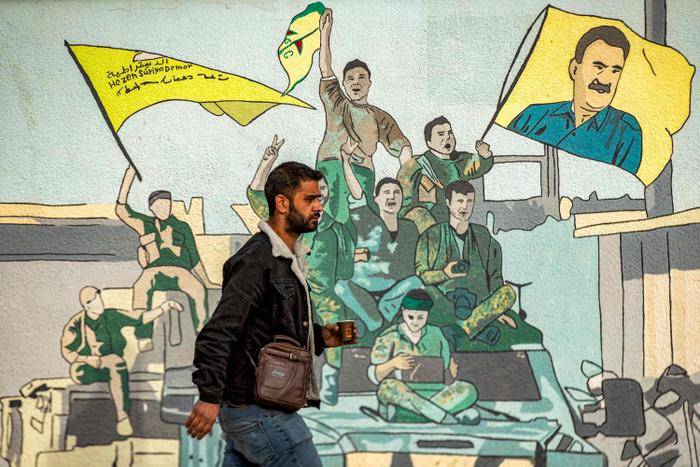Unraveling the Complexities of the Kurdish Situation in Syria
The Syrian civil war has been a longstanding and intricate conflict, with numerous factions and interest groups vying for power and control. Among the various groups involved, the Kurds have been a significant player, with their own distinct identity, culture, and aspirations. However, the Kurdish situation in Syria is complex and multifaceted, with various factors influencing their fate. To gain a deeper understanding of the Kurds' situation in Syria, it is essential to consider the following three questions.
The Kurds have a long and storied history in Syria, dating back to the 12th century. However, their presence in the country has been marked by periods of persecution, marginalization, and exclusion. Under the French mandate, the Kurds were denied recognition as a distinct ethnic group, and their language and culture were suppressed. This historical context has contributed to the Kurds' sense of grievance and their desire for greater autonomy and recognition.
In the 1960s and 1970s, the Syrian government, led by the Ba'ath Party, implemented policies aimed at assimilating the Kurds into the broader Syrian population. These policies included the forced relocation of Kurds, the suppression of Kurdish language and culture, and the denial of citizenship to many Kurds. These measures contributed to the Kurds' feelings of disenfranchisement and exclusion.
The Kurds in Syria have long sought greater autonomy and recognition of their rights as a distinct ethnic group. They have demanded greater control over their own affairs, including the management of their own education, healthcare, and security systems. They have also sought recognition of their language and culture, as well as greater representation in the Syrian government and parliament.
In 2013, the Kurds in Syria declared the establishment of the Rojava region, a self-declared autonomous region in northern Syria. The Rojava region has its own government, parliament, and security forces, and has been praised for its democratic and inclusive governance structures. However, the Syrian government has refused to recognize the Rojava region, and has instead sought to reassert its control over the area.
The Kurdish situation in Syria has significant implications for regional and international politics. The Kurds are a key player in the Syrian conflict, and their fate will have a significant impact on the outcome of the war. The Syrian government's refusal to recognize the Rojava region has contributed to the ongoing conflict, and has created tensions with neighboring countries, including Turkey and Iraq.
The Kurdish situation in Syria also has implications for international politics. The Kurds have received support from various international actors, including the United States and the European Union. However, this support has been limited, and has not been sufficient to guarantee the Kurds' security and autonomy. The Kurdish situation in Syria has also created tensions between the United States and Turkey, which has been a key ally in the region.
In conclusion, the Kurdish situation in Syria is complex and multifaceted, with various historical, cultural, and political factors influencing their fate. Understanding the Kurds' aspirations and demands, as well as the implications of their situation for regional and international politics, is essential for developing effective policies and solutions to address the ongoing conflict in Syria.


